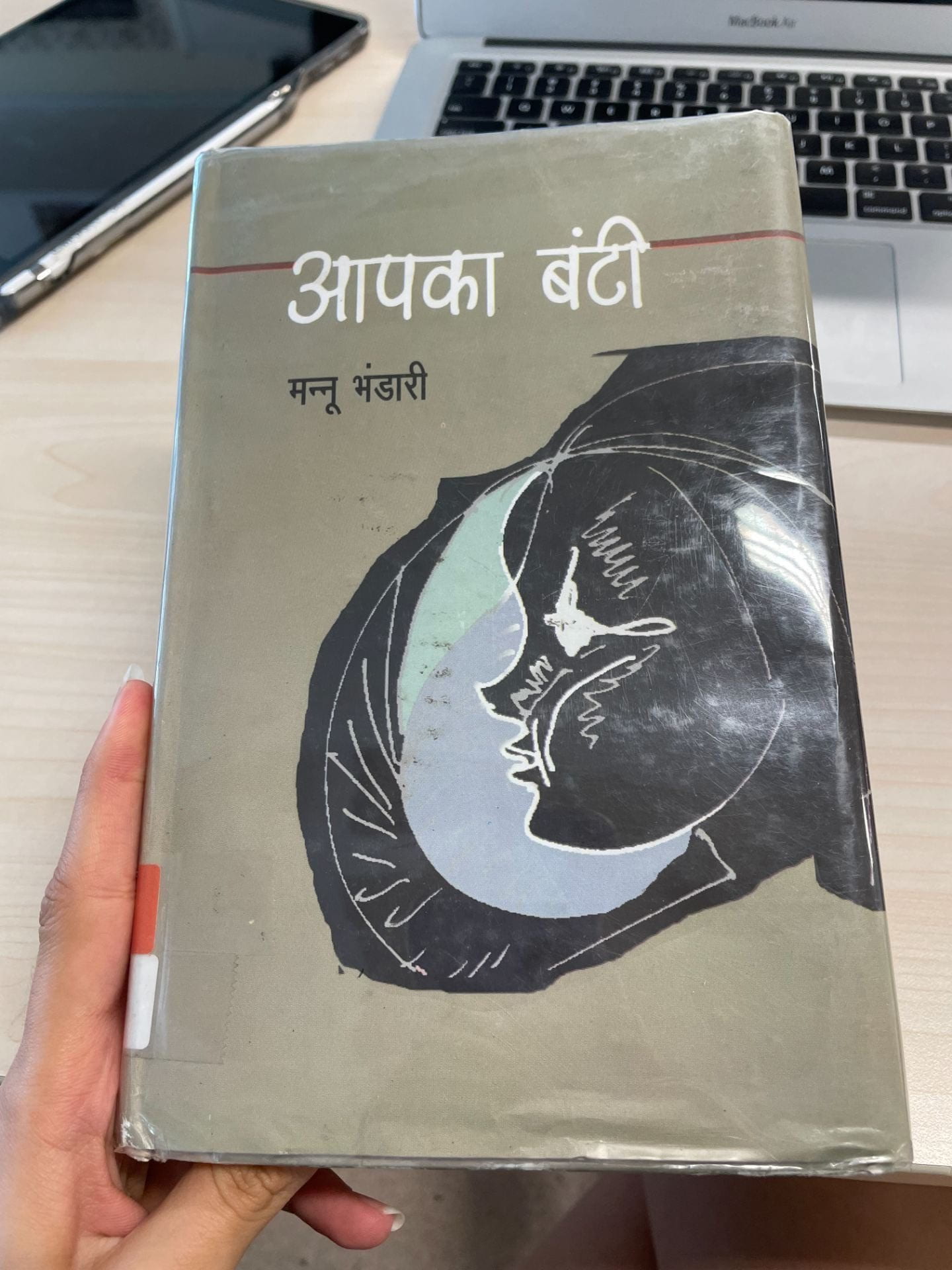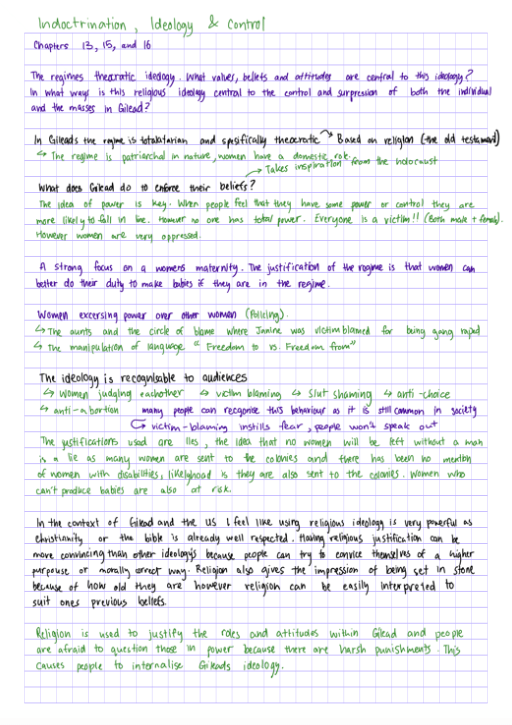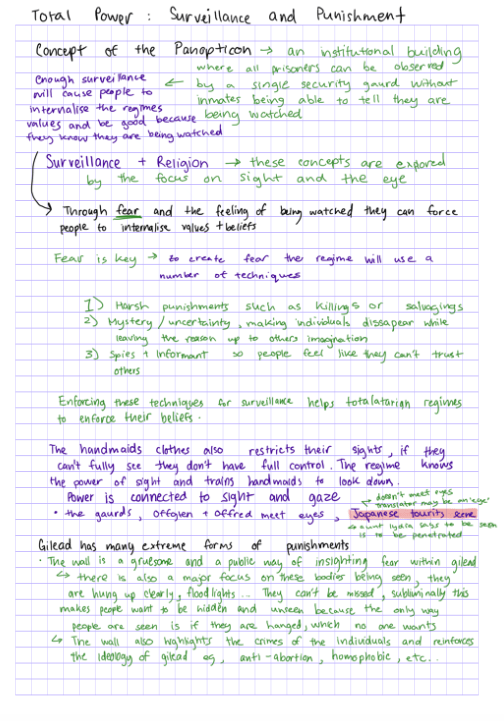How is power explored through this extract?
This extract comes from the Greek play “Antigone” which was written by Sophocles. “Antigone” explores the expression of power in the post-civil war setting of Ancient Thebes. The issue of power and justice is explored through the lens of religious laws and state laws. The ideas presented in “Antigone” are reflected in our contemporary political setting and in many ways can be related to the situations present in countries such as Afghanistan. At its core, Antigone is a play about different perspectives about the role of power and religion. Antigone believes in a higher power, Zeus, whose laws are more important than the laws of the state however Creon disagrees.
This extract uses the relationship between Haemon and Creon, between a father and son to explore Creon’s characteristics as a leader. Haemon is introduced as a voice of reason, he loves both his father and Antigone and respectfully tries to warn Creon about the implications of punishing Antigone. He explains that “the city mourns for this girl”, giving Creon the opportunity to reflect on his aim as a leader. This dialogue evokes emotions in the audience which creates sympathy in the audience. Creon’s stubbornness and ego leads him to act against the best interest of Thebes. Haemon and Creons power dynamic also shows that Haemon does not hold as much authority as he is younger, and not in a political position of power. Their power dynamic is highlighted when Creon rhetorically asks “So, men our age, we’re to be lectured are we?” This dialogue creates tension between the audience as it is made clear that Creon overpowered that of Haemons. His decisions act as a self-fulfilling prophecy, as he gets the opportunity to correct himself countless times.Though father and son, Haemon’s character is strongly contrasted by Croen’s allowing the audience to see Creon’s transition into a tyrannical leader. An understandable mistake, or difference in opinion snowballs into a tragedy. When Creon initially promotes himself into the role of king he says “the ship of state is safe ”, Haemon’s speech builds on that sailing metaphor saying “haul your sheets too taut, never give an inch, you’ll capsize”. Haemon not only foreshadows the impacts of Creon’s authoritarian ruling style, but also obviously directly shows the audience Creon’s new and changed intentions.
Religious beliefs have guided many ancient civilisations in their culture and law making, ancient Greeks are no different. This extract explores the power of religion, and the laws of the gods. In ancient Greece the laws of the gods were held to a very high regard, it was seen as a moral law which supersedes the laws of the state. Creon being the new head of state struggled with prioritising the laws of god with his own beliefs. During their heated discussion Haemon challenges Creon’s ideals of ruling “It’s no city at all, owned by one man alone” highlighting Creon’s selfish ruling style which looked out for his own selfish interests. The idea of democracy is extremely prevalent here however there is also a religious implication. The social significance of religion in ancient Greece gives more power to the laws of god and has strong influences on many laws and traditions, such as burials. The significance of the gods is highlighted when Haemon rhetorically asks “Trample down the honors of the gods?”, clearly implying that Creon’s actions oppose the values of god. Haemon, being the voice of reason and a representation of the citizens of Thebes also signals to the audience that Creon is opposing the laws which the majority believe in.
Para 3: Power and Gender:
- QUOTES
- “In fighting on her side, the woman’s side”.
- “If you are a woman, yes- my concern is all for you”
- “That’s what she is”
- Context of women in ancient greece
The idea of power is explored through many different avenue’s family, religion, justice, and politics to reflect public discourse in ancient Thebes. Play’s, specifically tragedies, allowed playwrights, such as Sophocles to explore political issues within ancient Greece and the idea of democracy and morals were highly examined. Sophocles promotes a pro-democratic narrative throughout “Antigone”, views which would have been popular in Ancient Greece during the time of the play. However, these ideas are still reflected in contemporary politics as many politicians care about their reputation and strength, so much so that they let the power go to their head and use it in the wrong way. Sophocles presents questions to the audience such as, What makes a good leader? And what is the hierarchy between religious and state laws? Sophocles highlights the imperfections of man throughout “Antigone”, and shows the dangers of having a single individual in charge of all the power. We are all imperfect beings who can be “single-minded”, “self-involved”, and “stubborn”, and without a democratic system we will ultimately lead to our own downfalls.
Feedback: Some good ideas and interpretations here, Anvita, but this does read like many ideas in a disjointed format! You needed to frame all of this in a bigger argument about the different ways in which power is depicted and explored in the play. When you quote, break down the quotation – unpack it. IN drama, you also need to consider the impact of what is happening on stage and the ways in which the characters represent something more than what they seem to be here.
My takeaways: This essay was overall really messy. In an attempt to include the many ideas that I had about this play I didn’t have a strong focus. The essay was very general and lacked a close analysis of the extracts and quotes, as well as the proper language to describe it. I think that I should have better planned my essays and expanded on specific ideas using evidence. Though the extract was long and had many ideas I think I could have broadly mentioned them without making them each a paragraph. I also needed to mention the significance of Antigone being a play and the drama aspects of it.


